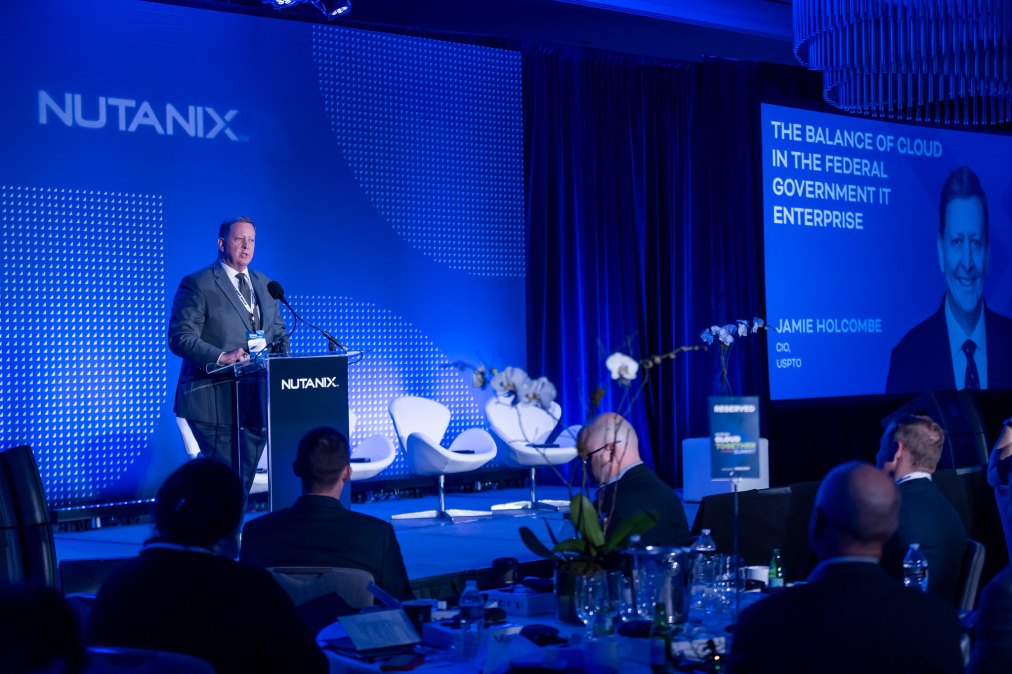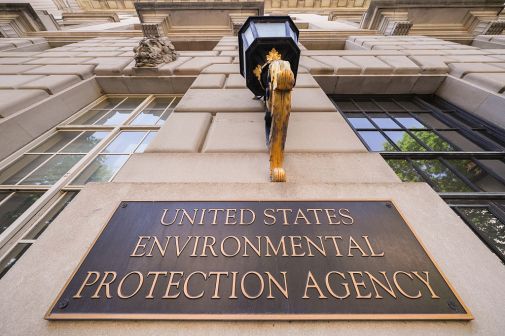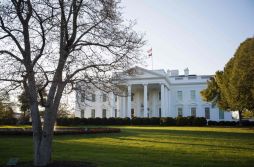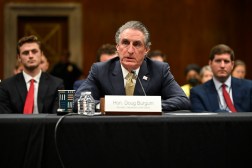USPTO issues guidance for AI use in applications and processes

Acknowledging that artificial intelligence is likely being used in the preparation and submission of applications, the U.S. Patent and Trademark Office is reminding those who interact with the office’s proceedings about applicable rules and policies for the technology’s uses.
In a notice posted Thursday in the Federal Register, the USPTO issued guidance focused on full and accurate disclosures from individuals working with AI as it relates to agency processes, as well as risk mitigation and special care when AI is used “in connection with USPTO practice.” While the agency does not currently require individuals presenting information to the USPTO to disclose AI usage in the drafting of any paper presented to the agency, it states that “applicants and practitioners should be mindful of their duty of disclosure.”
The agency said confidentiality and national security considerations should be kept in mind while using AI for applications, as well as good faith practices and a reminder to innovators and entrepreneurs that there is a threat of fraud at the intersection of AI and USPTO’s processes. USPTO noted that the guidance is “not meant to be exhaustive” while emphasizing that the notice serves primarily as a reminder of required compliance with existing precedents, laws and regulations.
“These tools have the potential to lower the barriers and costs of practicing before the office as well as helping law practitioners offer services to their clients with improved quality and efficiency,” the notice states. “As the use of AI continues to grow in the [intellectual property] community, it is essential to address the legal and ethical considerations that arise with the use of these technologies.”
Thursday’s posting follows USPTO’s existing rule regarding “candor and good faith,” which each individual is responsible for abiding by in their interactions with the office. The agency describes the responsibility in the filing as disclosing all information known to an individual about a material’s patentability, filing petitions to the office’s director and all other dealings with a patent examiner.
USPTO pointed to word processing software and other computer tools that have generative AI capabilities. Documents that were drafted either entirely or with the assistance of gen AI tools have to be reviewed and verified to ensure accuracy and the absence of any hallucinations or omissions of information, according to the notice.
USPTO recently announced its intent to award approximately $70 million to an industry partner for an AI patent search tool, along with further guidance on how the agency is approaching inventorship with the consideration of how AI can play a “greater role in the innovation process.”
Jamie Holcomb, USPTO’s chief information officer, said in an interview with FedScoop on Wednesday that the agency currently has three internal AI use cases that include classification, search and fraud detection in operation. Holcomb said that if the agency sees a proven AI use “in the small,” it will move to see if the tool is scalable.
“You got to know the culture of your agency in order to apply the right tool set,” Holcomb said. “You should go slow if you have a more traditional and conservative culture, not risk takers, or go quickly if you have somebody who’s willing to take that risk. But remember: don’t fail big, fail small.”






